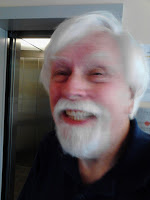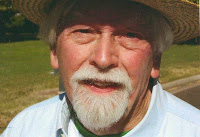You could say my parents were a kind of pack rats. They inherited a large volume of furnishings, oil paintings, gowns, chinaware, crystal ware, jewelry, silverware and a large volume of 19th century photographs. My mother tried desperately to sort the photos out and put them in chronological order. Since there was just too much, she finally gave up.
The photos depicted the members of two prominent puritanical families, the Browns and the Wilcox’s. Actually they were Presbyterians. Prudence Aldrich’s portrait was particularly intriguing. She looked particularly dour. My grandmother told me that she looked “dour” and “bitter” because she had had lost three children in childbirth, i.e. 3 miscarriages, 3 still births. So despite her otherwise comfortable circumstances, she was not a happy person. Prudence was born toward the end of the 18th century and lived to be ninety years old. Prudence’s husband was the right reverend James Bishop Wilcox who founded the Middlebury Presbyterian Seminary in Middlebury, Vermont.
My parents were poor, my grandparents were poor, but my great grandfather was a millionaire. His name was Captain Francis Leicester Brown who served in the Unin Army in the Civil War. Mark Hanna of the Republican Party of post-civil war USA offered my great grandfather an opportunity to become a U. S. presidential candidate. My great grandfather turned him down. Francis Leicester tended to give his money to the union soldier veterans in his regiment, to set them up in business or just to pay bills. By the time he died there was not much left to leave his son, my grandfather, Arthur August Brown.
I remember that, among the chinaware, there were several sets of Limoges demi-tasse cups that were truly magnificent works of art. And the Wedgwood blue chocolate pitcher and the Wedgwood green cream pitcher with the dryads dancing on the outside. And the dazzling sterling silverware. And then the jewelry. During the last 4 years of my father’s life, DeWitt Brown became senile and suspicious. He let perfect strangers run around our house. I could not live home all the time. My father never listened to me. I told my brothers in California about my father’s self-destructive behaviors, but they did not believe me.
Included in the vast pile of papers were signed letters from President Abraham Lincoln. Another letter signed Aaron Burr (my great great great great uncle). Another letter was written by Horace Greeley that he had sent to Karl Marx. How it got back into the Brown papers I do not know.
Another antique was a sampler stitched by my great great great great grandmother, Hannah Hopkins Hodge, Prudence Aldrich’s mother. She spelled out a fifteen line religious poem, then the alphabet in capital then small letters. She finished the sampler on her 13th birthday, May 10th, 1819, according to the sampler. So the sampler was not only dated, it gave the birthday of the young girl who completed it. An appraiser saw the sampler and said it was worth a small fortune and belonged in a museum.
By the time my father died, all this stuff had disappeared. I could have opened a Victorian museum with the Victorian furnishings and documents I had. And then, if my father’s visitors were out to exploit him, how could any of them been educated enough to understand the actual value of these documents and antiques?
Francis Leicester Brown’s father was Hiram Brown who was a multi-millionaire due to the success of the Shortsville Drill Company, a precursor of what later became the International Harvester Company. He was also founder of the Owosso Manufacturing Company, in Owosso, Michigan. He founded another profitable company in Chanute, Kansas. But he continued to live in Shortsville, NY. Hiram’s father was Charles Brown, a poor farmer.
Pack rats are usually very poor and accumulate piles of junk to symbolize imaginary wealth. My parents do not quite fit that definition, but we did sort of live in a past of affluence and social status. Also did you know there is a category of elder abuse called “exploitation of the elderly.” It should be taken seriously although my brothers did not take me seriously.
© April 2017
About the Author
I was born in 1944, I lived most of my life in New York City, Queens County. I still commute there. I worked for many years as a Caseworker for New York City Human Resources Administration, dealing with mentally impaired clients, then as a social work Supervisor dealing with homeless PWA’s. I have an apartment in Wheat Ridge, CO. I retired in 2002. I have a few interesting stories to tell. My boyfriend Kevin lives in New York City. I graduated Queens College, CUNY, in 1967.



